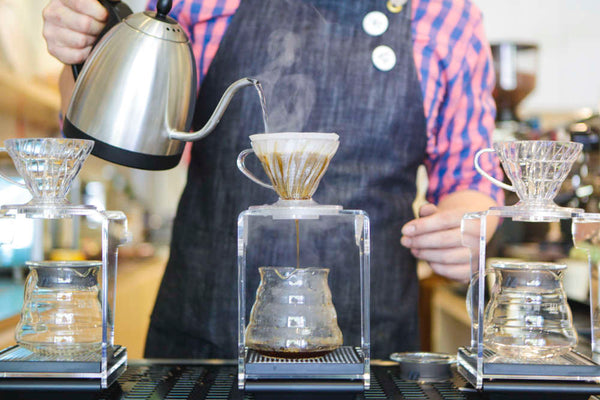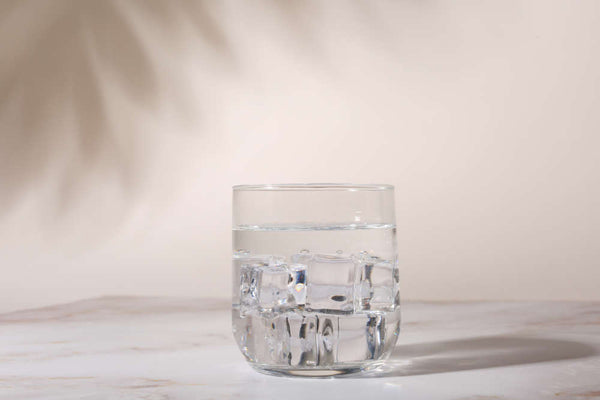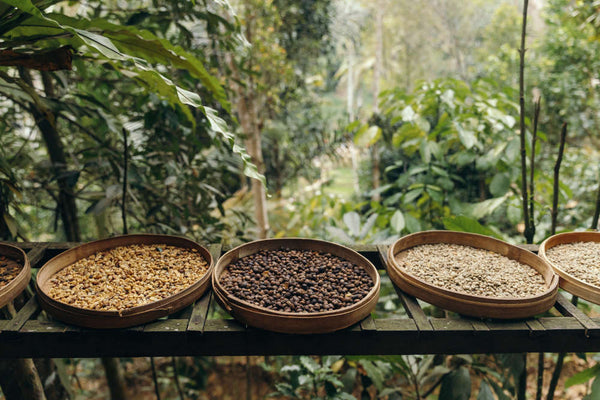Does costly coffee guarantee a more enjoyable cup of coffee? Is it safe for pregnant women to consume caffeine-filled beverages like coffee?
After studying the relevant scientific research, we have determined which popular coffee clichés are accurate. Are more expensive beans truly worth it? Is Italian espresso really better than others? We provide answers to these questions and many more so you can make informed decisions about your cup of coffee.
1. "Italian coffee tastes better"- old consideration
Fifteen to thirty years ago, people commonly thought of Italian coffee as the epitome of quality and flavor. Its dark roast contained a discernible bitterness derived from Robusta beans that were masked with milk or syrups when consumed. However, this notion is outdated, everyone has individual preferences for what makes an enjoyable cup of coffee!
The flavor of Lavazza and Illy is well-known to the elderly population, with an emphasis on the caramelization notes such as chocolate and nuts. They may not be prepared for a more advanced "third wave" coffee drink that has higher acidity levels accompanied by fruity, floral, and berry flavors.

The older generation is accustomed to the taste of Italian coffee. © unsplash.com
Despite this, the Italian coffee of today does not command the same global attention it once did. The industry has shifted its preference to coffees with bold flavors and unique undertones - which is exactly what one barista aimed for when they entered the National Barista Championship in March 2020 - a cup that tasted like blueberry yogurt!
Furthermore, Italian coffee packaging fails to provide information about the type of roast used. However, knowing this is essential for consumers as it helps them anticipate what their cups will taste like. That's why third-wave roasters emphasize providing exhaustive details on their products’ origin and roasting methodologies.
Whilst some people may savor Italian coffee, the specialty industry is more focused on coffees that offer a diverse range of flavor notes.
2. "Coffee is unhealthy" - Absolutely if you consume more than 6 cups of coffee per day.
Thankfully, regular and moderate consumption—such as 3-4 cups of filtered coffee or 300 mg worth of caffeine spread out throughout the day—will not lead to any adverse effects on your health. Let's consider a healthy daily limit for our bodies!
If you consume more than 6 cups of coffee daily and make or serve it incorrectly, the adverse effects may become evident. For instance:
- Enjoy steaming hot or sweetened to perfection.
- Brewing the perfect cup of coffee requires more than just beans and water--it also requires using the right filter.
A metal filter provides optimal flavor and clarity for your beverage. So if you want to enjoy an exceptional cup, reach for a metal filter!

Drinking coffee responsibly can be beneficial to the body, and some studies even suggest that it lowers the chances of death from illnesses related to the digestive or circulatory systems. So why not enjoy your daily cup while reaping its potential health benefits?
3. “Coffee damages teeth and bones and leaches calcium from the body” - depends on the amount of coffee
Consuming too much coffee has been linked to calcium loss, but when enjoyed in moderation - 3-4 cups per day or 300 mg of caffeine - it does not damage your bones and teeth. Therefore, don't neglect the norm, stick with a moderate amount for optimal health!
In order to prevent calcium deficiencies, you can take supplements or increase your dietary intake. One liter of milk includes 1000 mg of calcium, 100 g of cheddar or mozzarella cheese contains 800–1000 mg and 250 g cottage cheese offers 146–265mg - all in a single serving! Not only is it easy to get the necessary amount through food sources but its yummy too.
4. "Dark roasted coffee is stronger" - not really
People often make the error of associating fortitude with bitterness, but coffee strength (TDS) is in actuality the number of dissolved particles existing within brewed coffee. This differs by brewing method: TDS filter coffees range from 1.15-1.45%, while espresso TDS is 8 to 12%. Even if you use light beans for your espresso, it will still be stronger than a filter brew!
Despite appearances, dark-roasted coffees are not necessarily stronger than light-roasted ones. A beverage with a darker roast will have a sweeter, denser body and caramel notes while the one that is lighter in hue offers an acidic taste and enzymes for flavor. Since these nuances affect how we perceive their intensity differently, a drink from the former group tends to be perceived as more potent but they both maintain similar Total Dissolved Solids (TDS) levels.

Might you suppose that the caffeine level of light and dark roasts is indistinguishable to a human palate? Not quite, since how it is prepared matters. For example, espresso has higher levels of dissolved substances - including caffeine - than filter coffee. Hence, while they might have roughly similar strength in terms of caffeine content if both were brewed identically, espresso will still be more concentrated with regard to its buzz-inducing qualities!
The flavor of the coffee is greatly impacted by its roast profile, yet how 'strong' it is has nothing to do with this. Instead, Fortress determines this through its cooking method.
5. “You can’t drink coffee during pregnancy” - you can, but less
The World Health Organization has revealed that daily consumption of over 300 mgs of caffeine during pregnancy can heighten the risk of losing a baby.
Even though other factors like diet, smoking, and misapprehended timespan while taking in caffeine make it difficult to definitively connect reproductive health with coffee consumption, some consequences can still be deduced.
In light of divergent results from various studies, the American College of Obstetricians and Gynecologists and the March of Dimes both recommend that pregnant women should restrict their daily caffeine intake to no more than 200 mg - which is similar to 1 12 oz cup of coffee. Until further research has been done, this restriction appears to be optimal for keeping mothers-to-be safe.
Ever wondered how much energy lurks in your beloved snacks and drinks? Uncover the amount of caffeine they contain
Coffee, average (Ensure you always check the levels of your chosen blend before purchasing to guarantee quality.):
Brewed, 8 oz. | 95 – 165 mg
Brewed, decaf, 8 oz. | 2 – 5 mg
Espresso, 1 oz. | 47 – 64 mg
Latte, 8 oz. | 63 – 126 mg
Dr. Pepper (12 oz) | 37 mg
7 Eleven Big Gulp Diet Coke (32 oz) | 124 mg
7 Eleven Big Gulp Coca-Cola (32 oz) | 92 mg
Ben & Jerry’s Coffee Buzz Ice Cream (8 oz) | 72 mg
Baker’s chocolate (1 oz) | 26 mg
Green tea (6 oz) | 40 mg
Black tea (6 oz) | 45 mg
Excedrin (per capsule) | 65mg
6. "Coffee leads to dehydration" - it can but...
Did you know that drinking coffee responsibly can actually stimulate the body to drink more water? Contrary to popular belief, moderate consumption of caffeine-rich beverages like coffee will not lead to dehydration or fluid loss. In fact, it has been proven beneficial for overall hydration levels!
After a thorough investigation from EFSA experts, it's been concluded that while coffee does have a short-term diuretic effect, the benefits of drinking plenty of fluids still outweighed them. Thus, having coffee in moderation will help maintain fluid balance and serve as an excellent hydration source.
Research demonstrates that judicious caffeine consumption during physical exertion does not lead to dehydration and may even strengthen endurance (1, 2, 3, 4). If you sip coffee while exercising it will be simpler to tolerate.
Contrary to popular belief, coffee's short-term diuretic effects do not result in dehydration.

Contrary to popular belief, moderate caffeine consumption does not disrupt the body's hydration levels in everyday life or when engaging in physical activity. In fact, it provides no adverse effects on fluid balance whatsoever!
7. “Coffee can be stored in the cupboard for at least a year”
This year, coffee can remain safe to drink as long as proper storage methods are followed, however, its flavor may deteriorate much quicker. It is contingent upon various factors, such as:
- coffee beans quality,
- roasting,
- packaging speed after roasting,
- compliance with packaging rules,
- the presence of oxygen and nitrogen in the package,
- tightness of packaging,
- exposure to sunlight during storage,
- the presence of foreign odors.
With proper storage, whole coffee beans can be kept for up to a week in an open container and approximately one-to-two months with a degassing valve. Alternatively, pre-ground coffee that is sealed with nitrogen has a shelf life of as many as six months! Moreover, if the bag does not contain any nitrogen then it should only be retained for several hours at most. Lastly, capsules and drip bags packed with high-quality raw materials have been observed to retain their freshness over four to six months due to immediate roasting and packaging alongside added protective measures such as nitrogen gas infusion into each pack.
When stocking up on coffee, always make sure the roast is fresh - no longer than two weeks old - so that you fully enjoy its rich flavor! Examine the date of manufacture when purchasing in stores to ensure your taste buds don't miss out.
8. “The more expensive the coffee, the tastier it is” - Surprisingly, no.
Five influential factors determine the overall price of a cup of coffee. Let's examine each one with greater clarity!
The stock exchange closely monitors the cost of coffee, and its price fluctuates every day. You can choose between fresh-harvested coffee or purchase in advance for 2021/2022, while it costs more to obtain beans closer to harvest time, different companies offer varying prices depending on when they acquire their lot.

The adjustable differential is a factor used to compute the price of coffee for exchange. It can vary from location to location, Colombia, for instance, has a positive differential which automatically adds an additional cost on top of its exchange rate. In comparison, Peru's negative differential often produces prices that are even lower than the market level due to unreliable suppliers - thus making Colombian coffee more expensive and Peruvian coffee cheaper in terms of pricing.
Direct trade is a system where coffee importers purchase beans directly from farmers, sidestepping the "middleman" of an exchange. This means that prices are determined by mutual negotiations between both parties. With direct trade, it's more likely for producers to be paid fairer wages and foster sustainable relationships with buyers.
The current demand for a particular type or method of processing coffee will drive up the cost, as it is now considered to be a rare commodity.
The Specialty Coffee Association (SCA) has developed a scoring system to evaluate coffee quality. A score of 80 or more out of 100 is considered specialty grade, and beans with this rating are free from defects and have clean flavor profiles. When the cupping score surpasses 85 points, it means that these particular beans can be classified as micro-lot coffees—the highest grade available on the market that also carries a higher price tag.
Brazilian coffee is also highly esteemed and delicious, but with an SCA rating of 80-85 and a low coefficient on the exchange, it's surprisingly affordable.
Don't be fooled into thinking that pricey coffee always tastes better - the price of a cup is determined by several factors, none of which have to do with flavor. Coffee exchanges, adjustment differential, direct trade, demand level and SCA valuation all influence prices but not necessarily taste. Quality coffee can often be found at any cost range!
Summary
- Italian coffee, a product of the "second wave" with its distinctive bitter caramel-chocolate flavor, stands in stark contrast to the more advanced espresso of the "third wave", which looks to bring out all facets of taste. Older generations may find this type overly sour, but it is simply a matter of preference.
- Overindulging in coffee can be detrimental to your body, particularly if you consume it hot or sweet. Make sure that you abide by the recommended daily intake: drink no more than 3-4 cups of filtered coffee containing 300 mg of caffeine per day for optimal health benefits!
- As long as coffee is consumed in moderation, it does not deplete calcium from bones and teeth. Nonetheless, excessive consumption of coffee or inadequate amounts of calcium can cause a deficiency. The World Health Organization suggests that 1000-1200 mg/day should be taken for an optimal absorption rate.
- The potency of coffee does not rely on the roasting profile, but instead, it relies on the method used for preparation and how much coffee is used relative to the amount of water.
- During pregnancy, it is not necessary to abstain from drinking coffee altogether, however, you should limit your caffeine intake to 200 mg per day (2-3 cups of coffee).
- Contrary to popular belief, drinking 3-4 cups of filter coffee a day will not lead to dehydration - rather, it can actually help you maintain your body's natural water balance.
- If you keep coffee beans in a tightly sealed container, the taste will last for about one to two months. As for ground coffee, its shelf-life is considerably shorter - only a few hours when left open. However, if nitrogen gas is used to seal the package shut, it can remain fresh and flavorful for up to six months!
- You don't have to break the bank for a delicious cup of coffee. Delicious coffee is available in various price ranges so that you can find an option that fits your budget!

